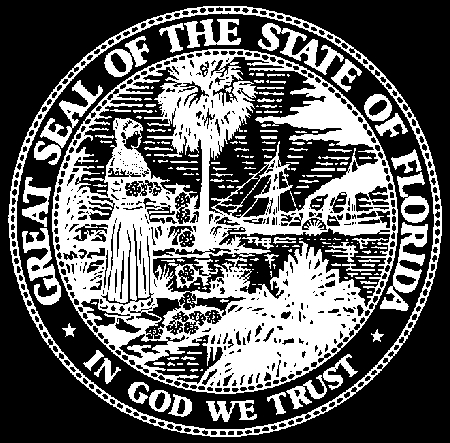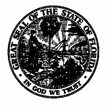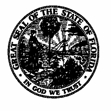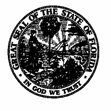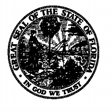FLORIDA DEPARTMENT OF EDUCATION
Request for Proposal (RFP) for Competitive Projects
Bureau / Office K-12
K-12 Public Schools/Bureau of School Improvement/Office of School Improvement
Program Name
Mathematics and Science Partnerships
Specific Funding Authority
P.L. 107-110, No Child Left Behind Act of 2001, Title II, Part B, Sections 2201, 2202, 2203, CFDA
#84.366B
Funding Purpose/Priorities
The purpose of this project is to improve the academic achievement of students in the areas of
mathematics and science by encouraging state educational agencies, institutions of higher education,
local educational agencies, and K-12 schools to participate in programs that (1) improve and upgrade
the status and stature of mathematics and science teaching by focusing on content and pedagogy (2)
focus on the education of mathematics and science teachers as a career-long process (3) bring
mathematics and science teachers in elementary schools and secondary schools together with
scientists, mathematicians, and engineers (4) develop more rigorous mathematics and science curricula
that are aligned with challenging State and local academic content standards, and (5) improve and
expand training of mathematics and science teachers, including training in the effective integration of
technology into curricula and instruction.
Total Funding Amount
$8,600,000
Range of awards is approximately from $500,000 and up to $2,500,000
Budget Period
January 30, 2006
through December 30, 2006
Program Performance Period
January 30, 2006
through December 30, 2006
Target Population
Mathematics and science teachers, prospective teachers, and students of mathematics and science.
Eligible Applicants
Partnerships whose membership must include the following:
(a) A science, technology, engineering, and/or mathematics (STEM) department of an institution of
higher education, such as community colleges, public and private colleges and universities; and
1
(b) Any Florida public school districts, and/or Florida laboratory schools, and
(c) High need local educational agency, which is defined by the following:
•
no less than 20% of the children are from families with incomes below poverty as
calculated using data compiled during the 2000 Census;
•
School(s) which have not made AYP for two consecutive years
•
Elementary and secondary teachers who need content and/or pedagogical professional
development in mathematics and science
Additional members may include:
(a)
another engineering, mathematics, science or teacher training department of an institution of
higher education;
(b)
additional local educational agencies, public charter schools, public or private elementary schools
or secondary schools, or a consortium of such schools;
(c)
a business; or a nonprofit or for-profit organization of demonstrated effectiveness in improving
the quality of mathematics and science teachers.
Application Due Date
Proposals are due in Grants Management by the close of business on
January 30, 2006.
Facsimile and
email submissions will not be acceptable.
Contact Persons
Michelle Reaves, Office of Curriculum Support, (850) 245-0765, Suncom 205-0765,
michelle.reaves@fldoe.org.
Kynder Crossner-Howell, Office of Grants Management, (850) 245-0722, Suncom 205-0722,
kynder.crossner@fldoe.org.
Peggy Primicerio, NCLB, Office of Grants Management (850) 245-0734, Suncom 205-0734,
peggy.primicerio@fldoe.org.
Assurances
The Department of Education has developed and implemented a document entitled, General Terms,
Assurances and Conditions for Participation in Federal and State Programs, to comply with:
•
34 CFR 76.301 of the Education Department General Administration Regulations (EDGAR) which
requires local educational agencies to submit a common assurance for participation in federal
programs funded by the U.S. Department of Education;
•
applicable regulations of other Federal agencies; and
•
State regulations and laws pertaining to the expenditure of state funds.
In order to receive funding, applicants must have on file with the Department of Education, Office of
the Comptroller, a signed statement by the agency head certifying applicant adherence to these General
Assurances for Participation in State or Federal Programs. The complete text may be found at
http://www.firn.edu/doe/comptroller/gbook.htm
School Districts, Community Colleges, Universities and State Agencies
The certification of adherence filed with the Department of Education Comptroller’s Office shall
remain in effect indefinitely unless a change occurs in federal or state law, or there are other
changes in circumstances affecting a term, assurance, or condition; and does not need to be
resubmitted with this application.
2
Private Colleges, Community-based Organizations, and Other Agencies
In order to complete requirements for funding, applicants must submit the certification page signed
by the agency head certifying applicant adherence to the general terms, assurances, and conditions.
Please note that private colleges, community-based organizations, and other non-public agencies
must also submit copies of the organization’s current budget, a list of its board of directors, and if
available, a copy of its most recent annual audit report prepared by an independent certified public
accountant
licensed in this state.
These items must be submitted prior to the issuance of a project
award.
NARRATIVE SECTION
For Federal Programs – General Education Provisions Act (GEPA)
Describe (concisely) the steps the applicant proposes to take to ensure equitable access to, and
participation in, its program for students, teachers, and other program beneficiaries with special needs
.
For details, refer to URL: http://www.ed.gov/policy/fund/guid/gposbul/gpos10.html
Equitable Services for Private School Participation
In accordance with P.L. 107-110, Title IX, Part E Uniform Provisions, Subpart 1, Section 9501, the
applicant must provide a detailed plan of action for providing consultation for equitable services to
private school children and teachers with the local education agency(ies) service area. For details,
refer to URL: http://www.ed.gov/policy/elsec/leg/esea02/pg111.html.
Narrative Components
1)
Project Abstract or Summary –
Provide a brief summary of the project.
2)
Project Need –
Describe the need for the project and provide back-up data as evidence.
•
Describe the institutional members of the partnership and the roles they have agreed to
fulfill
•
Provide data supporting the partnering Local Educational Agency(ies) [LEA(s)]
3)
Project Design –
Describe measurable objectives, activities, and timeline.
4)
Project Implementation –
How will the partnership encourage institutions of higher education to assume greater
responsibility for improving mathematics and science teacher education through the
establishment of a comprehensive, integrated system of recruiting, training, and advising
mathematics and science teachers?
What is the plan of the partnership for providing and expanding on-going professional
development for K-12 teachers in the areas of:
•
Research-based content knowledge
•
Instructional best practices for mathematics and science that are research-based
•
Using sophisticated laboratory equipment, computing facilities and/or libraries and other
resources that institutions of higher education are better able to provide than
o
elementary and
o
secondary schools
3
•
Integrating technology into curricula and instruction
How will the partnership bring teachers together with working scientists, mathematicians,
and engineers?
How will the partnership develop more challenging mathematics and science curricula that
are aligned with the Sunshine State Standards and with any other relevant educational
reform activities? (See State and National Professional Development Standards - Appendix D).
Required emphasis – address one or the other of the following, but not both:
Option A
: Provide a plan to recruit and assist working mathematicians and scientists to enter
into teaching through alternative certification.
OR
Option B
: Provide a plan to increase the mathematics and science content knowledge of
teachers of grades three through twelve.
5)
Support for Strategic Imperatives –
Describe how the proposed project will address reading
initiatives and incorporate one or more of the Florida State Board of Education (SBE) strategic
imperatives. URL: http://www.fldoe.org/meetings/2005_01_18/StratPlanDetails.pdf.
6)
Dissemination / Marketing –
Describe the methods /strategies you will use to disseminate and
market information about the project to appropriate populations.
7)
Evaluation –
Evaluation plan should include rigorous objectives that measure impact on teacher
knowledge and student learning.
A randomized controlled trial (RCT) is strongly suggested, and
a well-matched comparison-group design is recommended only if an RCT is truly not feasible.
Provides a formative evaluation design that measures progress toward each objective by a specific
indicator or indicators. Provides a summative evaluation design that can show the project led to
increased teacher knowledge and increased student achievement. Provides the qualifications and
tasks of the professional evaluator. How will you ensure that the evaluator will be involved
throughout the project.
8)
Budget –
Present a budget that reflects objectives and proposed costs of the project.
Scoring Criteria
The scoring criteria for each section of the project narrative are described below. The reviewer will
score each section based on the maximum possible points for each section. The total number of points
attainable is 100. To be eligible for funding, a proposal must attain a minimum of 70 points.
1)
Project Abstract or Summary (Not Scored) –
Project is described in a brief summary.
2) Project Need (10 Points) –
Need for the project is feasible and supported with proven data.
3) Project Design (25 Points) –
Project objectives are measurable, achievable, and are aligned with
project need; activities are aligned with objectives; and the timeline is feasible.
4) Project Implementation (25 Points) –
Proposal sufficiently provides a complete and appropriate
description of the following components within its plan:
o
The partnership will include an effective plan that encourages institutions of higher
education to assume greater responsibility for improving mathematics and science teacher
4
education through the establishment of a comprehensive, integrated system of recruiting,
training, and advising mathematics and science teachers.
o
The partnership provides a plan and criteria for appropriately identifying and selecting
teachers who need professional development in mathematics and/or science.
o
The partnership clearly provides evidence of a quality plan to expand on-going professional
development for K-12 teachers in the areas of content knowledge, teaching skills, various
laboratory, technology, research and other resources, and integrating technology into
curricula and instruction.
o
The partnership describes how it will effectively establish collaboration among teachers,
scientists, mathematicians, and engineers.
o
The partnership describes the development and implementation of more rigorous and
relevant mathematics and science curricula that are aligned with the Sunshine State
Standards and with any other relevant educational reform activities.
o
The partnership describes a feasible plan which emphasizes either
Option A
(to recruit and
assist working mathematicians and scientists to enter into teaching through alternative
certification)
OR
Option B
(to increase the mathematics and science content knowledge of
teachers of grades three through twelve).
o
The partnership provides an effective plan to support activities beyond the expiration of this
project.
5) Support for Strategic Imperatives (10 Points) –
Project clearly and feasibly addresses reading
initiatives and incorporates one or more of the Florida State Board of Education (SBE) strategic
imperatives in an effective manner.
6) Dissemination / Marketing (5 Points) –
Methods/strategies to disseminate and market
information about the project are thorough and effective.
7) Evaluation (15 Points) –
The evaluation design
fully describes the method(s) for evaluating the
project, with rigorous objectives that measure impact on teacher knowledge and student learning.
The evaluation plan provides for a randomized controlled trial (RCT) or a well-matched
comparison-group design. It is evident that the evaluation plan will be able to effectively measure
progress toward each objective by a specific indicator or indicators. The summative evaluation
design will be able to establish whether the project led to increased teacher knowledge and
increased student achievement. The evaluation design includes the appropriate qualifications and
tasks of the professional evaluator and provides sufficient assurance that the evaluator will be
involved throughout the term of the project.
8) Budget (10 Points) –
Project budget presents items that are realistic, appropriate, and clearly
reflect proposed project objectives.
Reporting Outcomes
To comply with Federal reporting requirements, each partnerships will submit an annual and final
report to the U. S. Department of Education demonstrating progress towards achieving the goals
indicated in original proposal.
In addition, each partnership will provide an interim report of progress on their measurable objectives
semi-annually to the state program coordinator.
5
Funding Method
Federal Cash Advance
(public entities) –
On-Line Reporting required monthly to record
expenditures. Federal cash advances will be made by state warrant or electronic funds transfer (EFT)
to a recipient for disbursements. For federally funded projects, requests for federal cash advance must
be made on the Electronic Federal Cash Advance Request System. If at times it is determined that
disbursements are going to exceed the amount of cash on hand plus cash in transit, an on-line
amendment can be made prior to the due date of the next Federal Cash Advance distribution on the
Electronic Federal Cash Advance Request System.
Reimbursement of Expenditures
(private entities) –
Payment made upon submission of documented
allowable expenditures. Reimbursements will be made by state warrant after disbursements are made
by the recipient. Requests for reimbursement with the appropriate back-up documentation should be
submitted in accordance with applicable program requirements and instructions on the Project Award
Notification.
Fiscal Requirements
•
Supporting documentation for expenditures is required for all funding methods. Examples of such
documentation include: invoices with check numbers verifying payment, and/or bank statements;
all or any of which must be available upon request.
•
All private non-profit and for profit applicants (including CBOs, FBOs, and other private entities)
that are recipients of DOE grants are required to attend fiscal management training prior to
submission of invoice(s) for payments.
•
All funded projects and any subsequent amendments are subject to the procedures outlined in the
Department’s
Project Application and Amendment Procedures for Federal and State Programs
(Green Book) and in the
General Assurances for Participation in Federal and State Programs
,
located in the Green Book. This document is an overview of grantor and grantee responsibilities
and is not inclusive of all requirements.
•
No funds may be obligated prior to the approved budget period or after the project period ends.
•
No local match is required.
•
Funds made available for this project shall supplement and not supplant other state or local public
funds expended for education programs.
•
Allowable expenditures include the costs associated with appropriate staff for administering the
project, office materials and supplies, and all other relevant costs associated with the administration
of this project (travel reimbursement, meeting room rentals, consultant fees, printing, conference
registration fees, etc.).
•
Non-allowable expenditures include any capital or facility improvements, entertainment,
refreshments (food or beverages), and decorative items.
•
Complete the DOE 101 Budget Narrative Form providing sufficient information to enable the
reviewers to understand the nature of and the reason for the expenditure. Expenditures must
correlate with the narrative portion of the project application that describes the specific activities or
tasks to be implemented. Budgets should include descriptions of all personnel funded through the
project. These should be listed by position, amount of salary, and number of FTE (full time
equivalent) time.
•
All project recipients must submit a completed DOE 399 form, Final Project Disbursement Report,
by the date specified on the DOE 200 form, Project Award Notification.
6
Notice of Intent-to-Apply
The due date to notify the contact person of intent-to-apply is
December 30, 2005
. Send the
notification by e-mail to michelle.reaves@fldoe.org or fax (850) 245-0803, and include an e-mail
address. Providing the intent-to-apply is not required for an application to be considered, but assists
the applicant by assuring receipt of answers to frequently asked questions and competition updates.
Conversely, eligible organizations which file an intent-to-apply are not required to apply.
Method of Answering Frequently Asked Questions or Providing Changes
Answers to questions and competition updates will be posted at the following website:
http://www.firn.edu/doe/curriculum/titleiib.htm. The last date that questions will be answered is
January12, 2006
.
Applicants are encouraged to e-mail questions, and answers will be posted on the
website.
Conditions for Acceptance
1)
Application is received within DOE by the close of business on the due date.
2)
Application includes required forms: DOE 101-Budget Narrative and DOE 100A-Application
3)
All required forms have original signatures by authorized entity
4)
Application must be submitted to:
Office of Grants Management
Florida Department of Education
325 W. Gaines Street, Room 344
Tallahassee, Florida 32399-0400
NOTE: Applications signed by officials other than the appropriate agency head identified above
must have a letter signed by the agency head, or documentation citing action of the governing
body delegating authority to the person to sign on behalf of said official. Attach the letter or
documentation to the DOE 100A when the application is submitted.
•
Applicants must submit four copies of the completed application, with ONE copy having an
original signature. It is recommended that the signature be made in an ink color other than black to
help reviewers determine the original signature copy .
•
Applications from
private
institutions must also include a
¾
signed statement by the agency head certifying applicant adherence to the General
Assurances for Participation in State or Federal Programs (see attached),
¾
copy of the organization’s current budget,
¾
list of its board of directors, and
¾
copy of the agency’s most recent annual audit report prepared by an independent certified
public accountant
licensed in this state, if available.
Method of Review
Proposals will be read and scored by geographically and demographically diverse panels of subject
matter experts representing K-20 institutions.
7
Attachment A
Definition of “High-Need LEA”
Guidelines for targeting schools/districts
A. The following are the eligibility criteria for a high-need local educational agency:
A district that serves no fewer than 10,000 children from families with incomes below the
poverty line; or
A district in which no less than 20% of the children served are from families with
incomes below the poverty as calculated using data compiled during the 2000 Census;
and
A district in which teachers are not teaching in the academic subjects or grade levels the
teachers were trained to teach (Elementary teachers who are fully certified but lack skill and
knowledge to teach mathematics and science should be a focus.); or
A district in which teachers have emergency, provisional, or temporary certification or
licensing.
B.
The partnership should choose schools within the “high-need LEA(s)” which
1.
Have high potential for developing a replicable prototype; and
2.
Received Title I funding, did not make Adequate Yearly Progress and/or received a
grade of “D" or "F" in Florida's accountability system.
8
Attachment B
Glossary of Terms
Measurable Objectives
are the outcomes you hope to achieve in each of the program components.
Some objectives will lead to the achievement of the final objectives. To be measurable, objectives
should assign responsibility by answering “who” and continue with “will do what?” “to or for how
many of whom?” “by when and to what extent?” Answers include the quantity to be produced, a
deadline and a level of proficiency.
Professional Development
means instructional activities that
1.
2.
3.
4.
5.
6.
Are grounded in scientifically-based research and the Sunshine State Standards.
Improve and increase teachers’ knowledge of the academic subjects they teach.
Enable teachers to become highly qualified. (Hold an in-field, Florida teaching certificate.)
Are sustained, intensive, and classroom-focused in order to have a positive and lasting impact
on classroom instruction and the teacher’s performance in the classroom.
Are aligned with the Standards for Professional Development identified in Attachment D.
Support the use of research-based pedagogy in the instruction of students.
Scientifically-based Research
means research that involves the application of rigorous, systematic
and objective procedures to obtain reliable and valid knowledge relevant to education activities and
programs and includes research that
1.
Employs systematic, empirical methods that draw on observation or experiment and involve
rigorous data analyses that are adequate to test the stated hypotheses and justify the general
conclusions drawn.
2.
Relies on measurements or observational methods that provide reliable and valid data across
evaluators and observers, across multiple measurements and observations and across studies
by the same or different investigators.
3.
Is evaluated using experimental studies or quasi-experimental designs in which individuals,
entities, programs or activities are assigned to different conditions, with appropriate controls to
evaluate the effects of the condition of interest and with a preference for random-assignment
experiments* or other designs to the extent that those designs contain within-condition or
across-condition controls.
4.
Ensures that experimental studies are presented in sufficient detail and clarity to allow for
replication or, at a minimum, to offer the opportunity to build systematically on their findings.
5.
Has been accepted by a peer-reviewed journal or approved by a panel of independent experts
through a comparably rigorous, objective, and scientific review.
Summer Workshop or Institute
[in Title II, Part B] is a workshop or institute, conducted during the
summer that
1.
Is conducted for a period of not less than two weeks.
2.
Includes, as a component, a program that provides direct interaction between students and
faculty.
3.
Provides for follow-up training during the academic year that is conducted in the classroom
for a period of not less than three consecutive or nonconsecutive days.
*Random assignment is used in impact studies to form two statistically equivalent groups of participants in the most
objective way possible. The term participants may refer to students, teachers, classrooms, or schools.
9
Attachment C
Required and Allowable Activities
Required Activities
Complete the needs assessment required as a basis for the response to this Request-for-Proposal.
The assessment would determine teacher quality and professional development needs regarding
teaching and learning of mathematics and science of schools and local education agencies that
comprise the eligible partnership.
Improve and upgrade the status and stature of mathematics and science teaching by encouraging
institutions of higher education to assume greater responsibility for improving mathematics and
science teacher education through the establishment of a comprehensive, integrated system of
recruiting, training, and advising mathematics and science teachers;
Focus on the education of mathematics and science teachers as a career-long process that
continuously stimulates teachers’ intellectual growth and upgrades teachers’ knowledge and
skills;
Bring mathematics and science teachers in elementary schools and secondary schools together
with scientists, mathematicians, and engineers to increase the subject matter knowledge of
mathematics and science teachers and improve teaching skills through the use of sophisticated
laboratory equipment and work space, computing facilities, libraries, and other resources that
institutions of higher education are better able to provide than the elementary and secondary
schools; and
Improve and expand pedagogical training of mathematics and science teachers, including
training such teachers in the effective integration of technology into curricula and instruction.
Comprehensive Needs Assessment
Proposals submitted in response to this RFP must be based on the results of a comprehensive
assessment of teacher quality and professional development needs, regarding teaching and learning of
mathematics and science, of schools and local education agencies that comprise the eligible
partnership.
Allowable Activities
Partnerships may use funds for one or more of the following activities related to mathematics and
science teaching and learning in Florida’s elementary or secondary schools. The following activities
are listed in No Child Left Behind, Part B, Sections 2202.
Creating opportunities for enhanced and ongoing professional development of mathematics and
science teachers that improve the subject matter knowledge of such teachers;
Promoting strong teaching skills for mathematics and science teachers, including integrating
reliable scientifically-based research teaching methods and technology-based teaching methods
in the curriculum;
Establishing distance-learning programs for mathematics and science teachers using curricula
that are innovative, content-based, and based on scientifically-based research that is current as of
the date of the program involved;
Designing programs to prepare partnership participants to provide professional development to
other mathematics or science teachers at the school and to assist beginning and other teachers at
the school or consortia of schools, including a mechanism to integrate the experiences of teachers
from a summer institute into the provision of professional development and assistance;
10
Establishing and operating programs to bring mathematics and science teachers into contact with
working mathematicians, scientists, and engineers, to expand such teachers’ subject matter
knowledge of and research in mathematics and science, which may include mentoring by
graduate and post-graduate students in mathematics, the sciences and engineering; and
Training mathematics and science teachers and developing programs to encourage young
women and other underrepresented individuals interested in mathematics and science careers
(including engineering and technology) to pursue post-secondary degrees in majors leading to
such careers; such activities should be directed toward developing a deeper awareness for
careers in mathematics, science and engineering for all students at late elementary and middle
level settings so that better choices may be made by students entering high school programs of
study.
Recruiting mathematics, engineering, and science majors to teaching through the use of
programs that the State Board of Education has determined to be effective in recruiting and
retaining individuals with strong mathematics, engineering, or science backgrounds;
Creating advanced degree or certification programs and/or mathematics or science endorsements
for grades three through eight.
Implementing more rigorous mathematics and science curricula that are aligned with the
Florida’s Sunshine State Standards and with expectations for post-secondary study in
mathematics and science; and
Designing programs to identify and develop exemplary mathematics and science teachers in
grades three -through-twelve classrooms.
11
Attachment D
State and National Professional Development Standards
The resources listed below should be used to ensure that the proposal addresses the state and national
professional development standards for teachers.
Florida Professional Development Standards can be accessed at
http://www.firn.edu/doe/profdev/pdstandards.htm.
Chapter 8 of the
Principals and Standards for School Mathematics
provides professional development
guidelines for mathematics educators at http://standards.nctm.org/document/chapter8/index.htm.
Chapter 4 of The National Science Education Standards provides professional development standards
for science educators. This may be found at http://www.nap.edu/html/nses/html/4.html.
12
